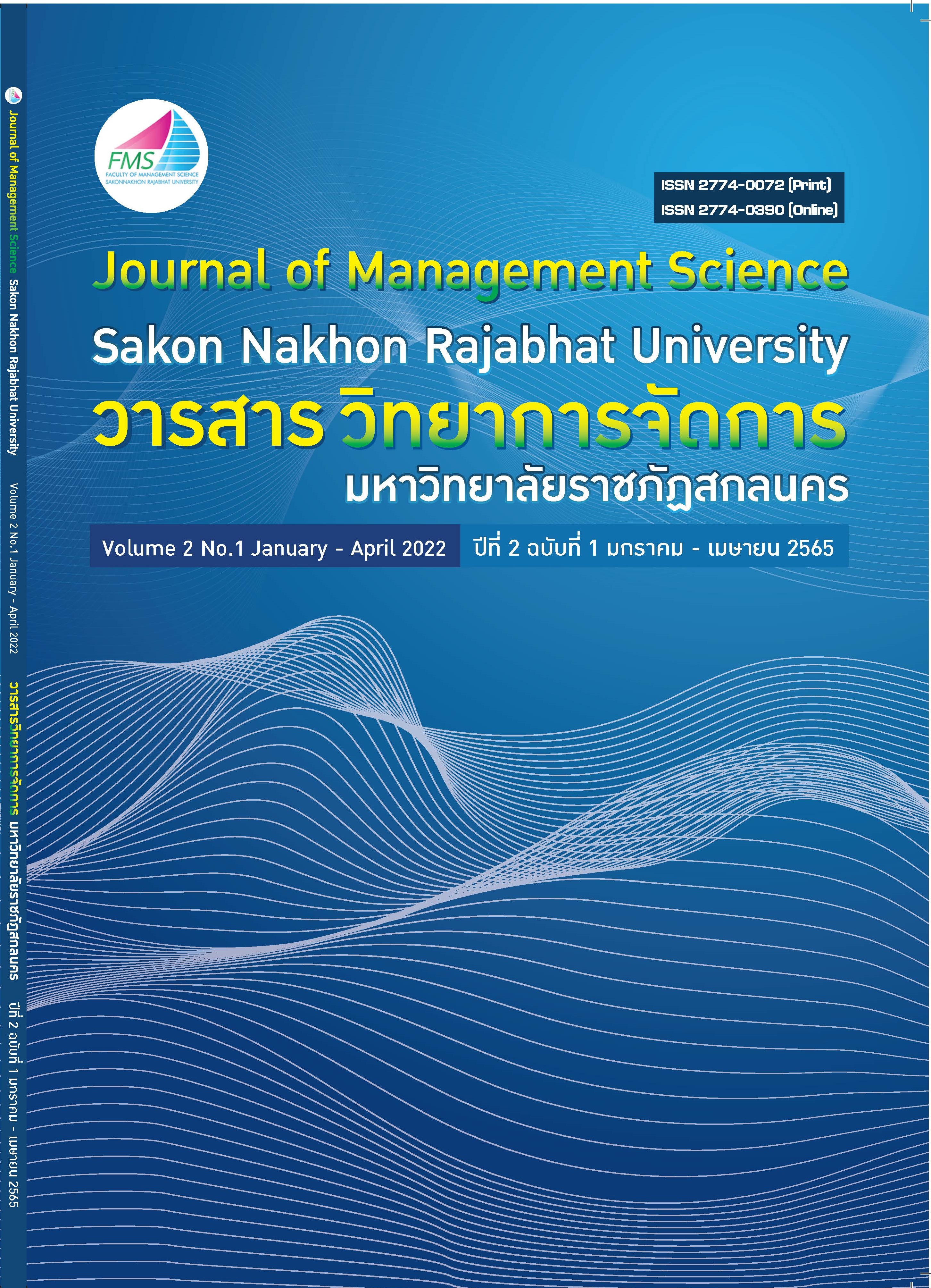TRANSFORMATIONAL LEADERSHIP OF THE PUBLIC VOCATIONAL COLLEGES’ ADMINISTRATORS IN SAKON NAKHON PROVINCE
TRANSFORMATIONAL LEADERSHIP OF THE PUBLIC VOCATIONAL COLLEGES’ ADMINISTRATORS IN SAKON NAKHON PROVINCE
Keywords:
Transformational leadership, School administratorsAbstract
The purposes of this study included the following: 1) To investigate the transformational
leadership of the public vocational colleges’ administrators in Sakon Nakhon Province, 2) to compare
the transformational leadership of the public vocational colleges’ administrators in Sakon Nakhon
Province according to the sizes of the educational institutes, and 3) To examine the problems of
the transformational leadership of the public vocational colleges’ administrators in Sakon Nakhon
Province. The informants consisted of 241 administrators and teachers. The instrument was 5 pointrating
scale questionnaire with 0.90 reliability. The statistics employed for data analysis were
frequency, percentage, mean, standard deviation, t-test, One-way ANOVA, and Scheffe’s comparison method.
The study revealed these results: 1. The overall transformational leadership was at the high level. Of
all aspects, the intellectual stimulation was at the highest most level while the inspiration/motivation,
idealistic influence, and individualized consideration were at the second, third, and fourth, most level,
respectively. 2. Comparing the transformational leadership based on the sizes of the educational
institutes, it was found that the transformational leadership of the small-sized, medium sized and
large-sized schools significantly differed at 0.05 statistical level. In addition, the transformational
leadership of the administrators in small-sized schools was higher than the transformation leadership
of the administrators in the medium-sized and large- sized schools. 3. Regarding the transformational
leadership problems, these problems were indicated and they were ranked from the most to the
lowest levels: the administrators were self-centered; they were not the good role models since they
lacked efficient self-control, human resources and work management; the administrators did not
support their co-workers to have the affection for self-development and progress; the administrators did
not have audacity to designate the jobs to the seniors.
Downloads
Published
Versions
- 2023-02-05 (2)
- 2022-05-11 (1)
How to Cite
Issue
Section
License
Copyright (c) 2022 JOURNAL OF MANAGEMENT SCIENCE SAKON NAKHON RAJABHAT UNIVERSITY

This work is licensed under a Creative Commons Attribution-NonCommercial-NoDerivatives 4.0 International License.
An article published in the Journal of Management Science. Sakon Nakhon Rajabhat University is the opinion, copyright and responsibility of the author of the work.







